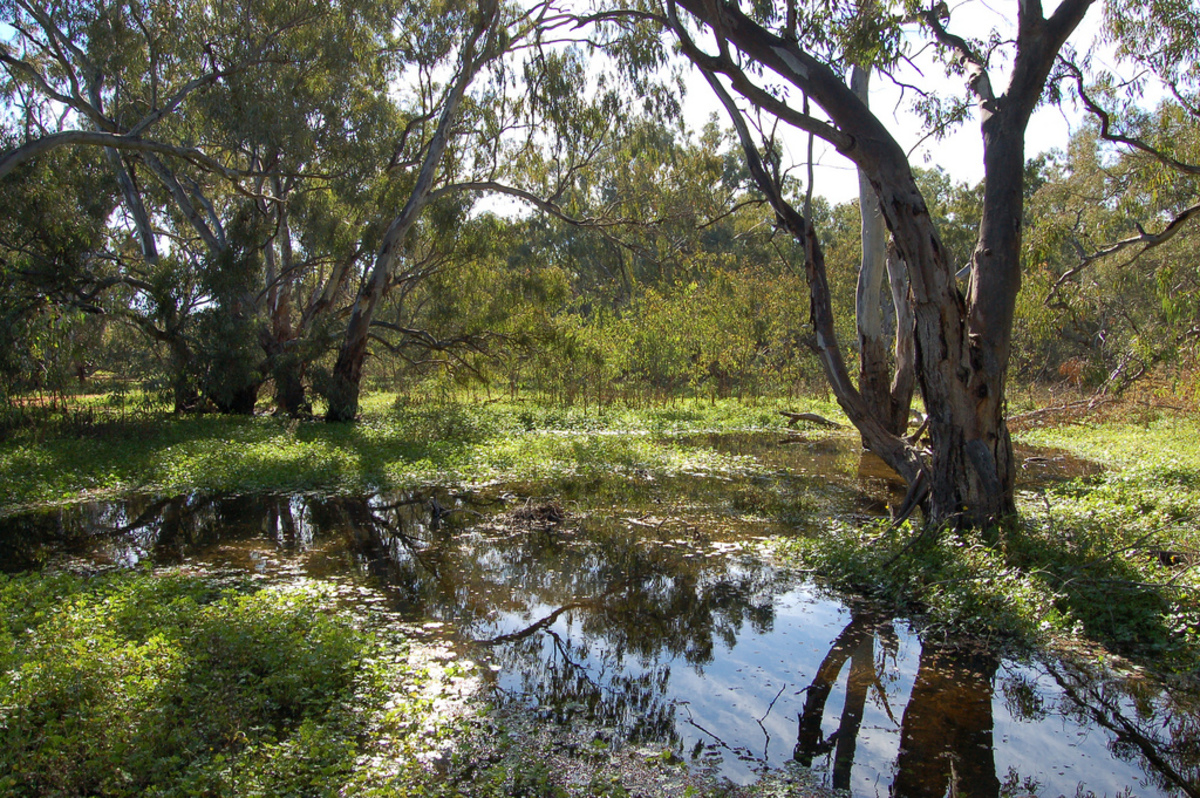Floodplain harvesting regulations blocked
Oliver Brown
07 May 2021, 12:42 AM
 The NSW government is being urged to work with all concerned stakeholders to create universally satisfying floodplain harvesting regulations to ensure the ongoing protection of natural ecosystems like the Macquarie Marshes (pictured here in July 2008).
The NSW government is being urged to work with all concerned stakeholders to create universally satisfying floodplain harvesting regulations to ensure the ongoing protection of natural ecosystems like the Macquarie Marshes (pictured here in July 2008).STATE Minister for Water Melinda Pavey is being urged to work with all concerned MPs and local stakeholders to find a shared stance on floodplain harvesting regulation.
New regulations, which would have enabled millions of litres of floodwater to be harvested from the Northern Basin were introduced on Friday 30 April and disallowed less than a week later by the NSW Legislative Council.
One of the most vocal objectors to the new regulations was Independent MLC Justin Field who made the motion to disallow the new regulations.
Mr Field said “The key thing about floodplain harvesting is that huge volumes of water will be taken from the Basin before other places like the Macquarie Marshes get a drink.”
“These floodwaters are not just for corporate irrigators, it also goes into the ground to recharge our systems.”
The motion to block the operation of three floodplain harvesting regulations was supported by Labor, the Shooters, Fishers and Farmers Party, the Greens and Animal Justice Party.
Ahead of the debate, Greens MP and Water Spokesperson Cate Faehrmann said the harvesting regulations would be a “death warrant” for the Darling River.
“These regulations would legalise the historic take of millions of litres of water that should be sent downstream for communities and the environment,” Ms Faehrmann said.
“Despite the ICAC finding that many government decisions over the past decade have been inconsistent with the Water Management Act and the priorities of water sharing plans, the Water Minister continues to act in the interests of her big irrigator mates.”
Politicians weren’t the only opposition to the new regulations. Chief Executive of the Nature Conservation Council of NSW Chris Gambian also said they would have been disasterous for the Murray ecosystem.
“Many of our wetlands, floodplain environments, and lakes, and all the animals and plants they support, rely on regular flood events,” Mr Gambian said.
“To allow irrigators to take up to 500 per cent of a licence allocation in a single year is a recipe for disaster and would see important floodwaters stolen from the environment and downstream communities.”
Mr Field said he welcomed the support of his fellow members of the Legislative Council for the disallowance and hoped all involved parties, including the government, could work together to create a fair alternative.
“I realise we all come to this debate with a different emphasis, but there is a shared objective to ensure the rules around floodplain harvesting are fair and transparent and can deliver for downstream communities and the environment,” he said.
“I have been clear with Water Minister Melinda Pavey and the irrigator groups that before billions of dollars of floodplain harvesting licences are handed out, clear targets for downstream flows must be set in law to ensure that the other water licence holders, downstream communities and the environment get their fair share of these flows.
“Without these targets, the environment and downstream communities end up carrying the risk if the Government gets the modelling or rules wrong and as we continue to see falling inflows into our catchments as a result of climate change. That’s an unacceptable situation.”
In the aftermath of the regulations being blocked, NSW Farmers President James Jackson said the regulation of floodplain harvesting was a step in the right direction in ensuring compliance with water caps and to verify water take by effective metering.
“This is one important factor in the goal of the equitable sharing of water, but it is clear that more analysis and actions need to be undertaken to confirm that connectivity of water and the correct rule settings enable the security of agriculture across the state,” Mr Jackson said.
“It is not appropriate to simply hope that all this will happen, and its equally not appropriate to undermine the current steps towards achieving the equitable sharing of water.”
Minister Pavey’s office was approached for comment, though she was unable to provide a statement before deadline.